Unity in Rhythm: Ziggy Marley and Burning Spear Deliver a Night of Reggae Harmony in Baltimore
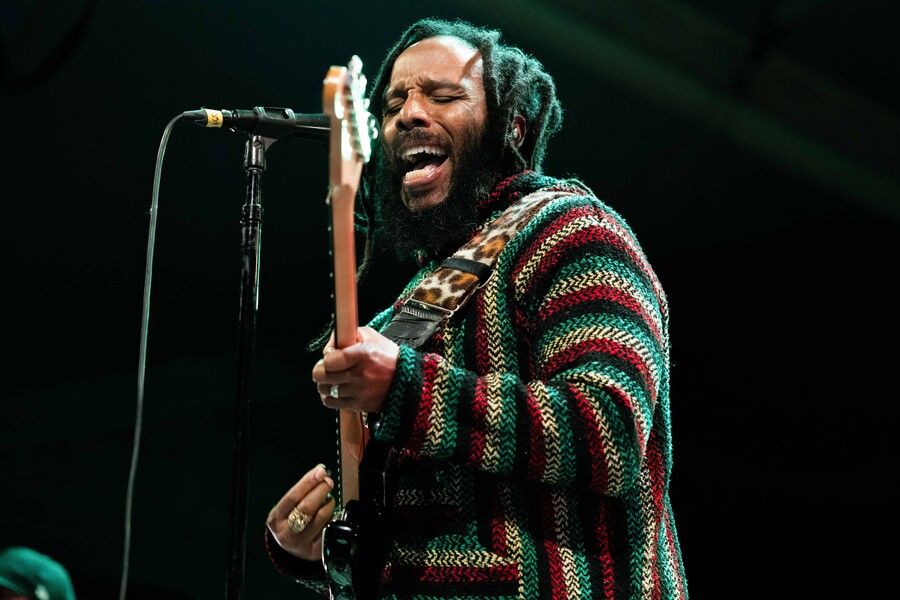
For many years, the idea of taking the 535 members of the United States Congress to a dog park has lingered as an amusing thought experiment. In light of recurring government shutdowns, this desire resonates louder than ever. At the dog park are big dogs and little dogs, black, brown and multi-colored companions. Dogs who have known each other for quite some time, and dogs who have just met. And yet, they all seem to manage to find a way to get along. The problem, of course, is that most dog parks cannot accommodate 535 people just hanging out for no reason other than to learn how to coexist peacefully. Recently, a fantastic new solution emerged: bringing all 535 members together to a feel-good Ziggy Marley reggae concert.
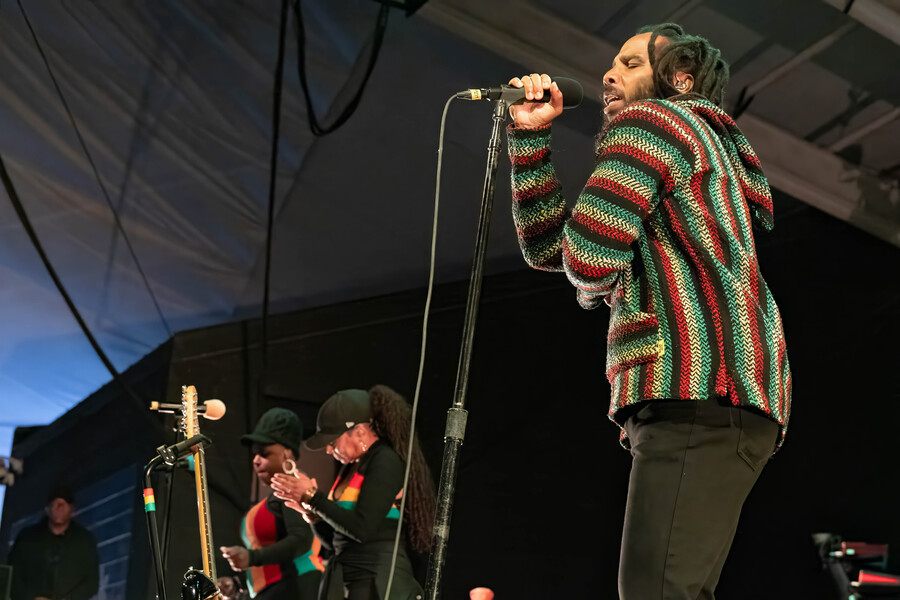
At Pier Six Pavilion in Baltimore, Ziggy Marley, with support from 80-year-old Burning Spear opening the show, gave a multi-cultural, multi-generational audience a great night of fun, soothing and inspiring reggae tunes that even the most contentious members of Congress might have found hard to resist.
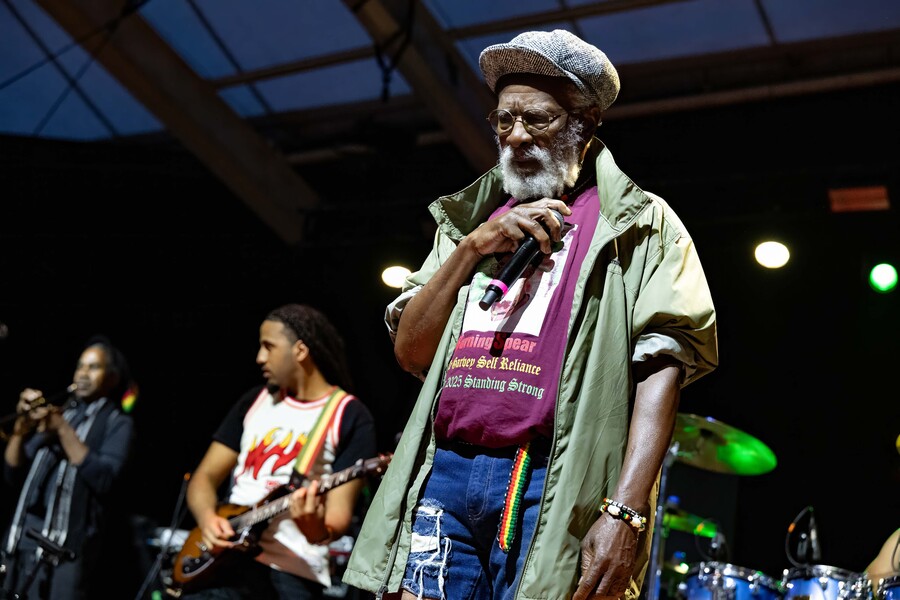
Grammy award winner Wilson Rodney OD – more commonly known as Burning Spear – turned 80 years old this past March, and delivered a 17-song set of traditional Jamaican reggae. His stage presence belied his years as he alternated between singing, dance moves and moments on his conga drums. His nine-piece ensemble included trombone, saxophone, trumpet, keyboards, drums, two guitar players, bass and himself. The “OD” attached to his name is an honorary “Order of Distinction” bestowed upon citizens of Jamaica who have rendered outstanding service to the country.
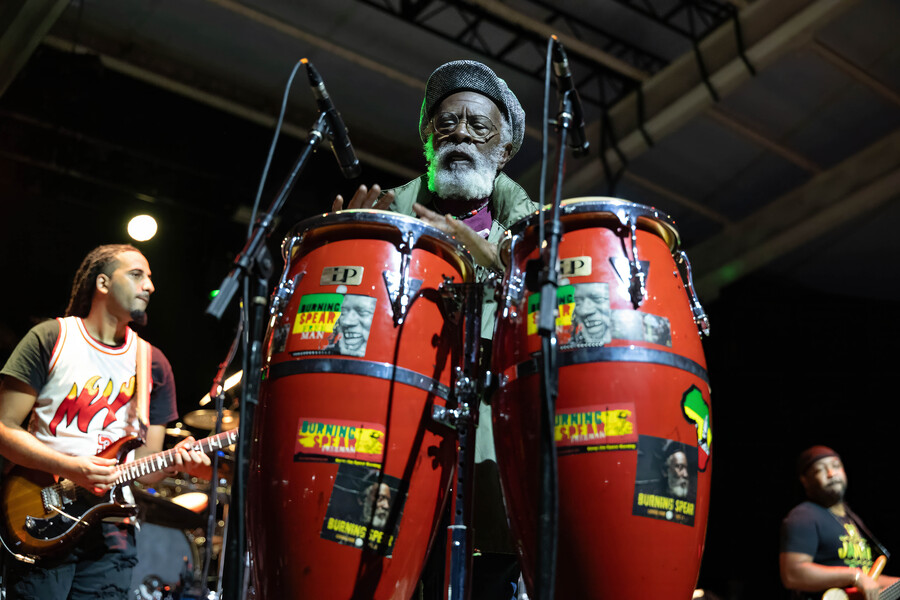
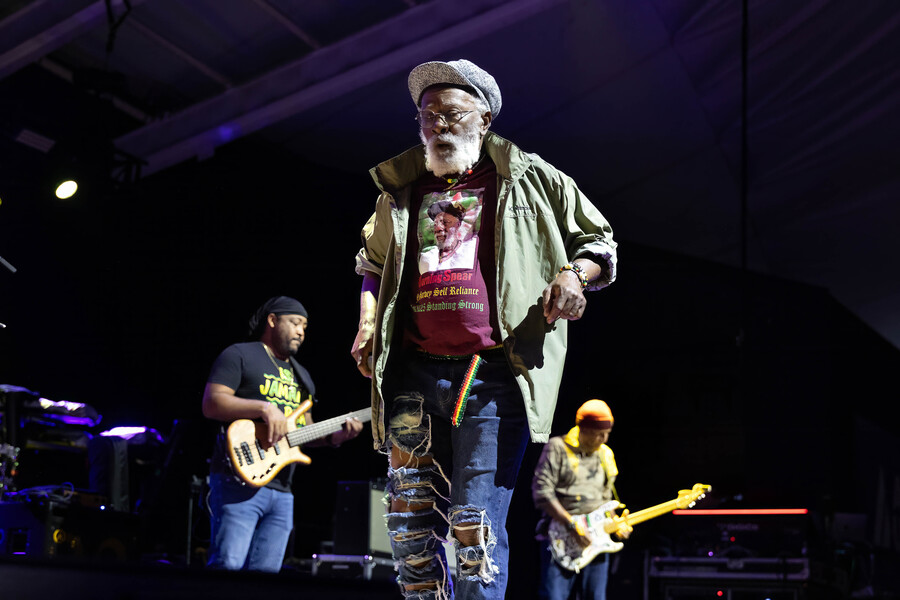
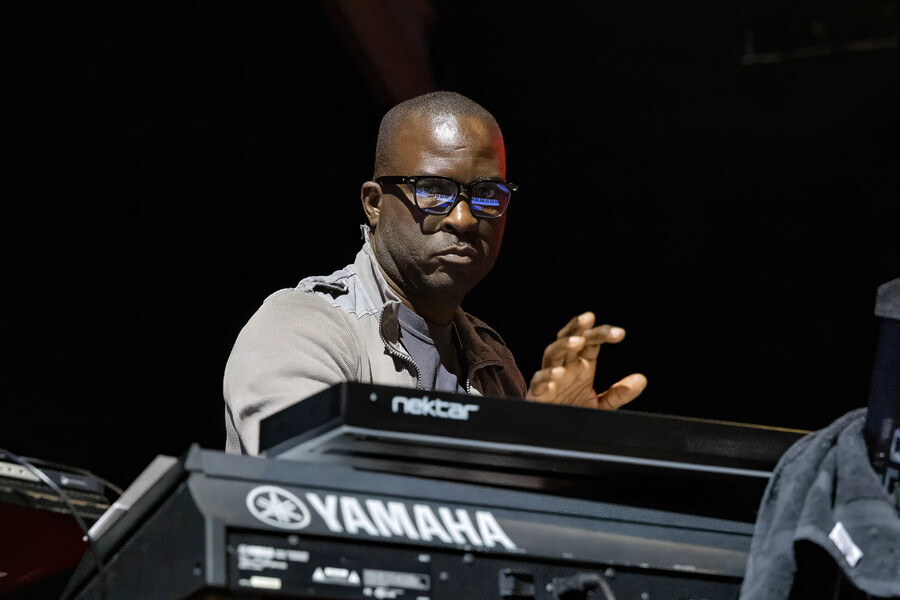
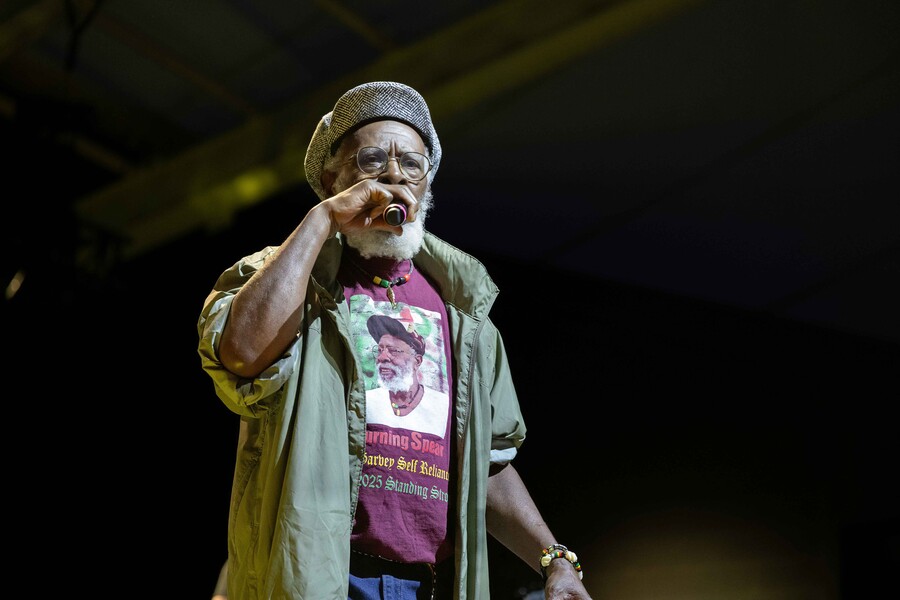
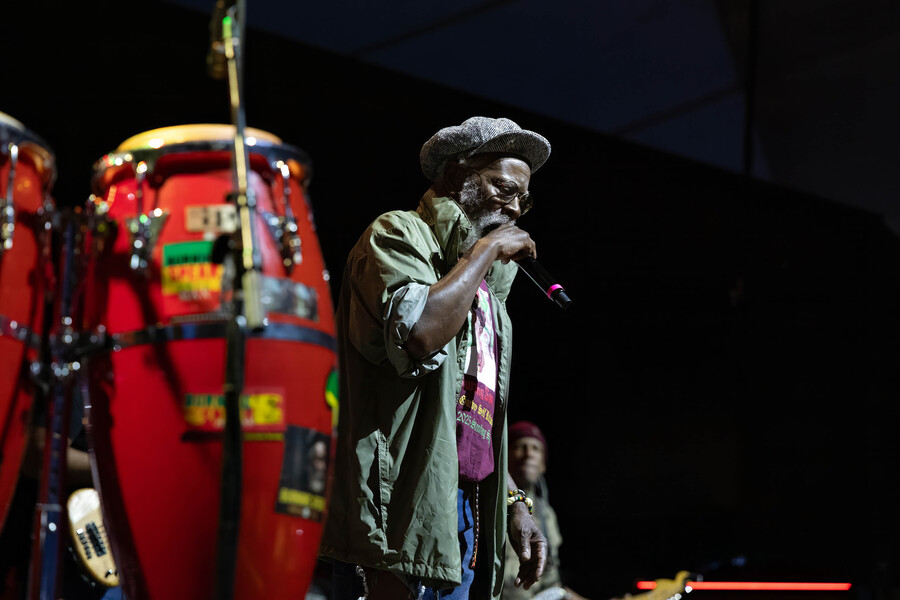
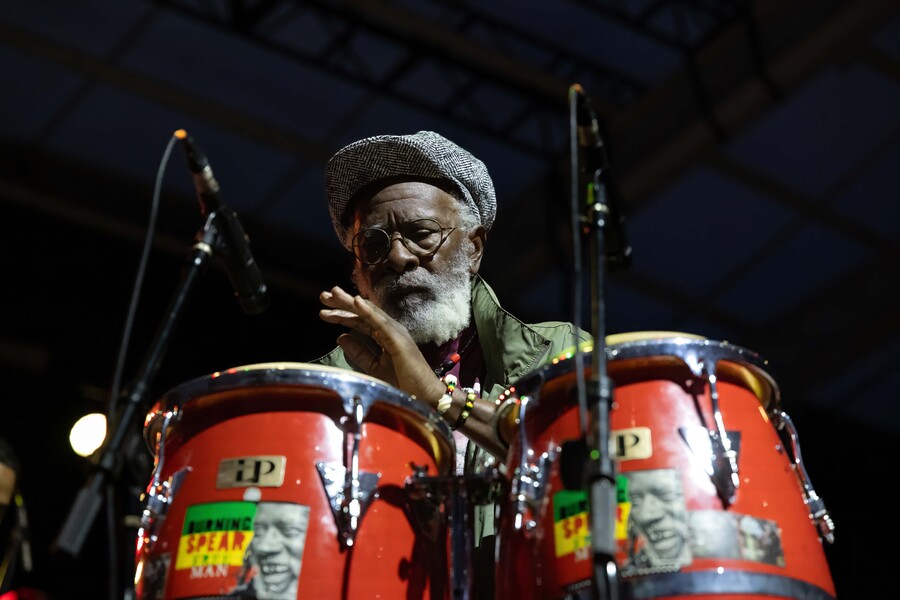
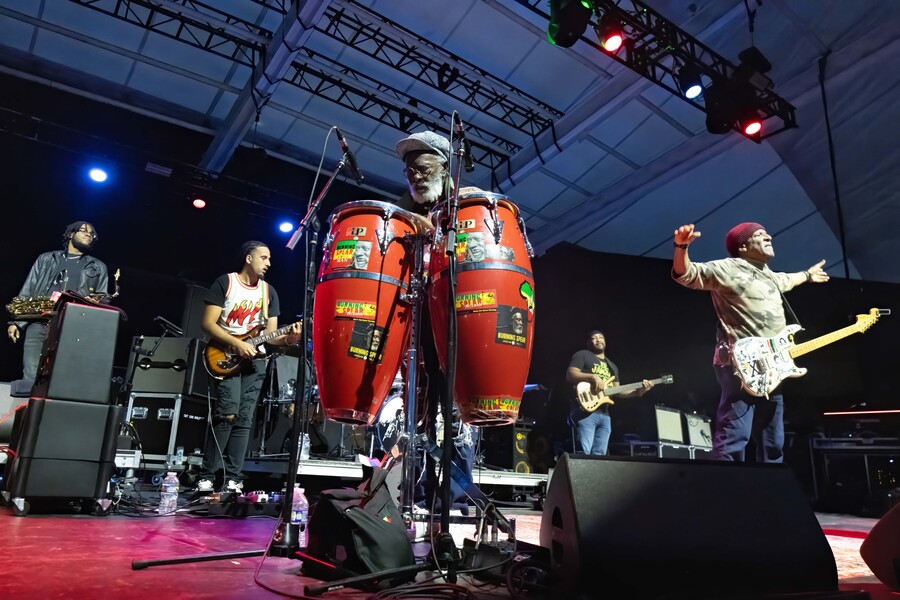
His style of reggae is deeply spiritual and militant, often centred around Jamaican political activist Marcus Garvey, black consciousness, and African identity. His sound is minimalist, emphasising basslines, percussion, and horns, with chants and repetitive rhythms that evoke a ceremonial, meditative feel and connect with his roots. It contrasted greatly with that of Ziggy Marley, who is definitely carrying on his father Bob Marley’s legacy. Ziggy leans more toward a pop-reggae fusion, blending traditional reggae with elements of rock, funk, and world music. His lyrics often focus on love, unity, environmentalism, and personal growth.
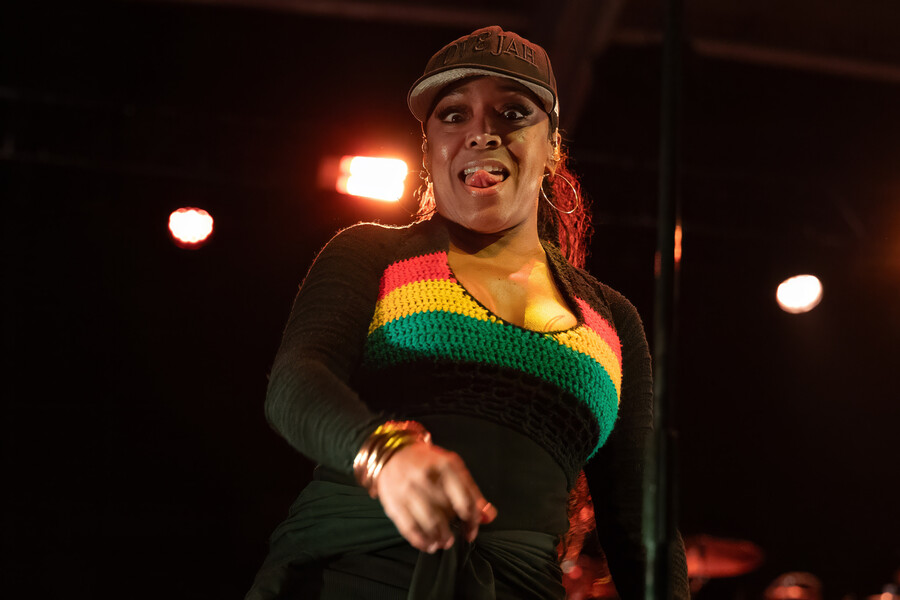
Ziggy was actively engaging with his band and fans, often switching between playing guitar on one song or freewheeling and just singing on the next. Opening with “High On Life,” Ziggy started the show with an upbeat, positive look at his world – smiles all around. “Tomorrow People” followed, exhorting the people of Jamaica to stand up for their rights and a better future. After covering father Bob Marley’s intensely political “Get Up, Stand Up,” Ziggy morphed into “Black Cat,” attempting to reverse one’s fear of superstition. Throughout his set, Marley could be seen alternately playing guitar or moving about the stag,e dancing and interacting with his fellow musicians.
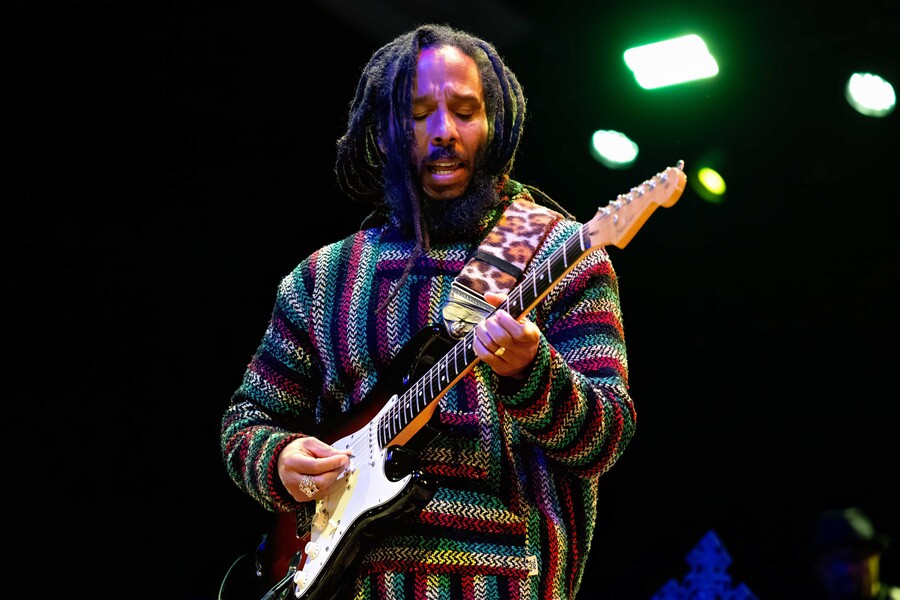
In addition to “Get Up, Stand Up,” two special moments were two covers from his father’s intensely personal “Exodus” album, recorded after the senior Marley fled a turbulent Jamaica for London following an assassination attempt in which he and his wife were wounded. Son Ziggy did great justice to “Jamming” and “One Love,” which brought back memories of college years and songs from what Time Magazine in 1999 called the best album of the 20th century.
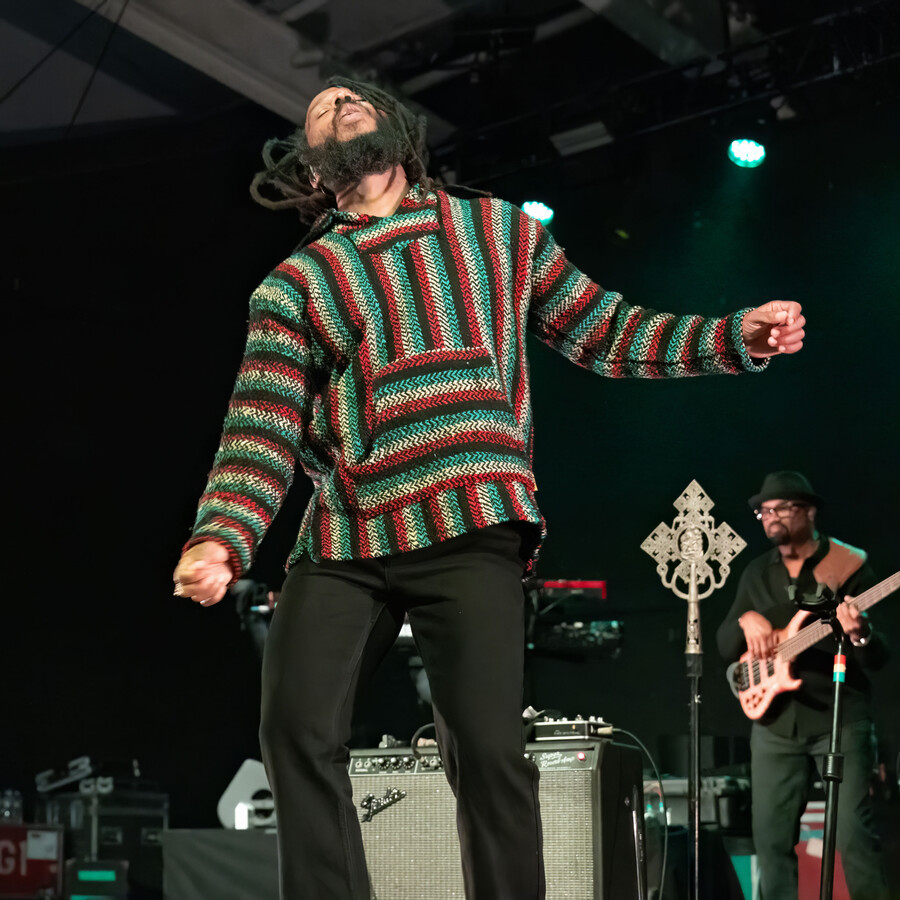
All told, the Ziggy Marley concert brought to Baltimore everything one could want in a musical evening out on the town – great music, great vibes and great people. It was a show worth seeing again.
Photos (c) David Fang
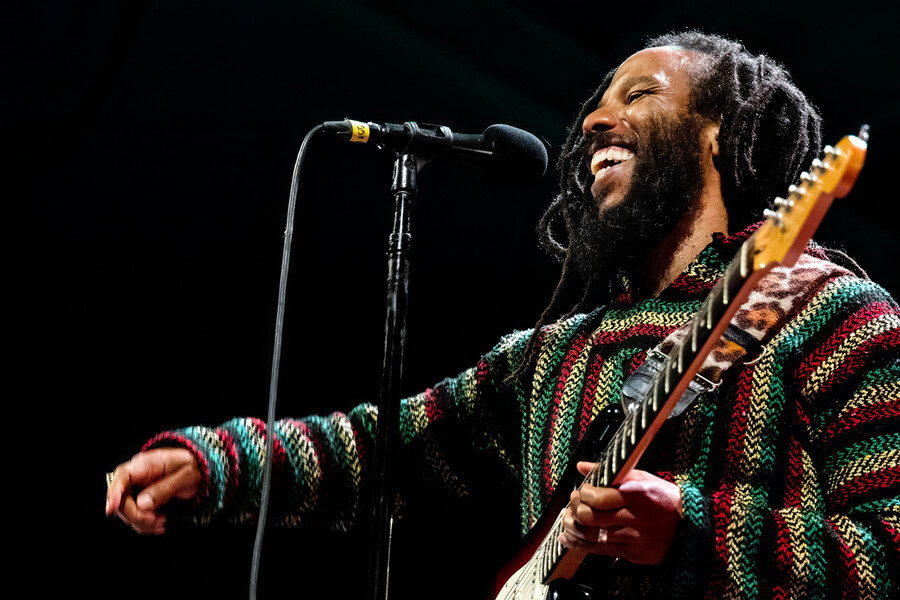

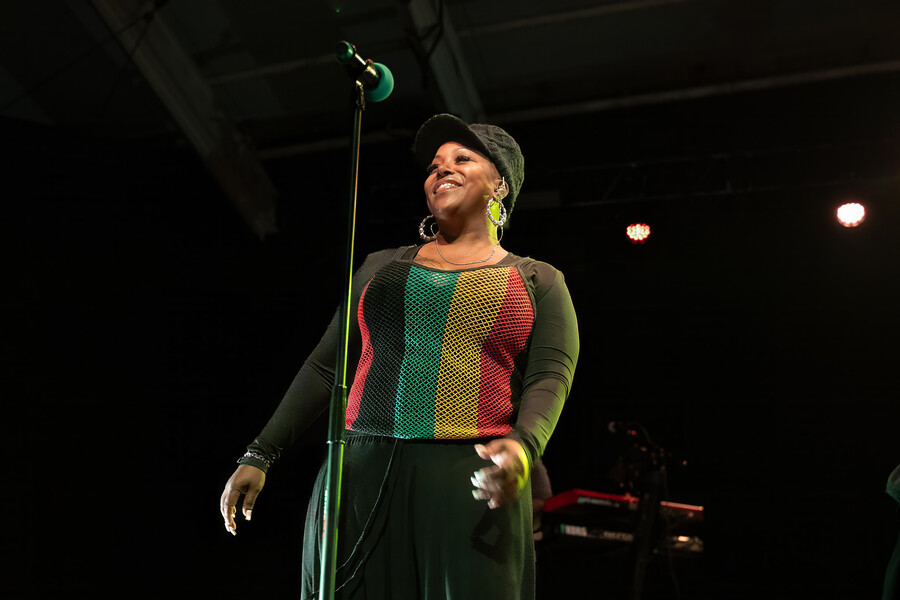
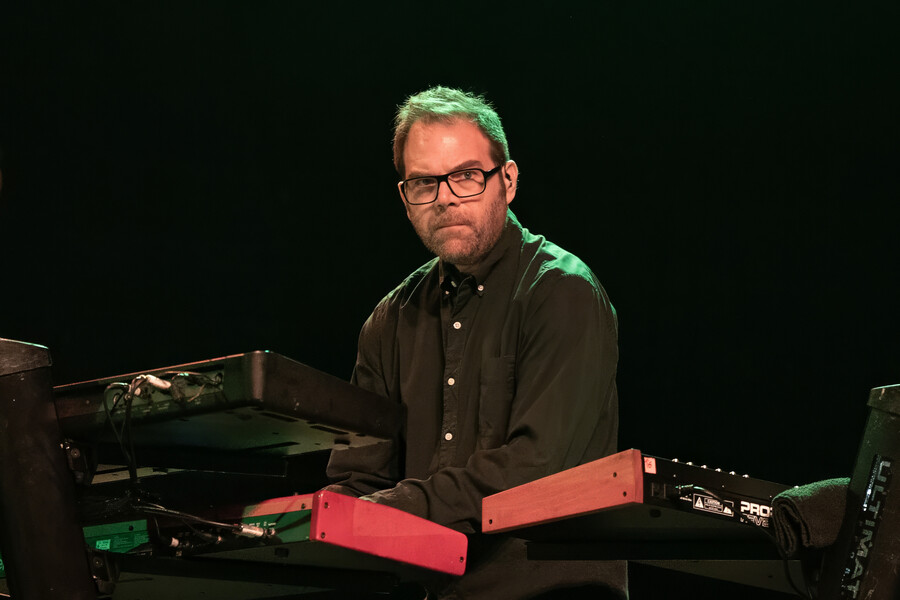
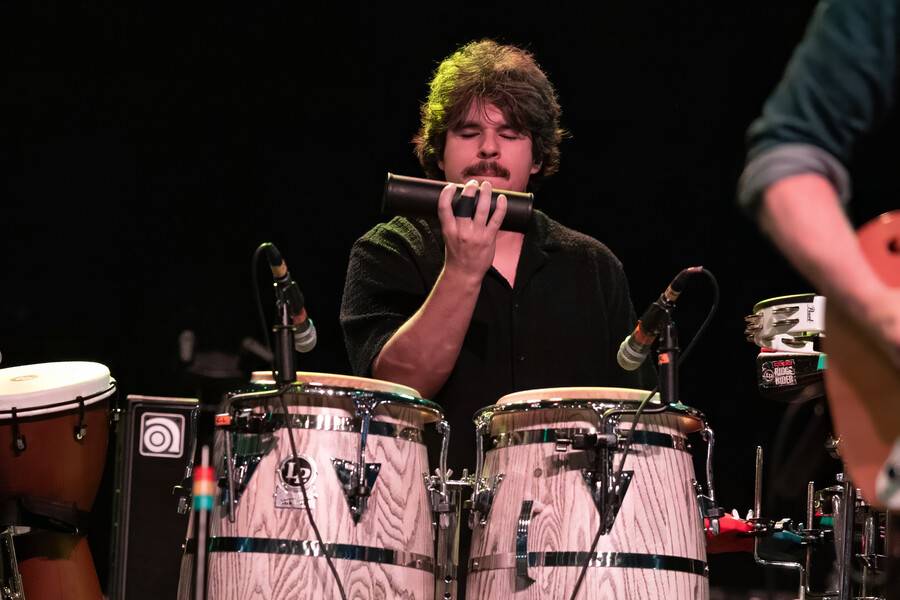
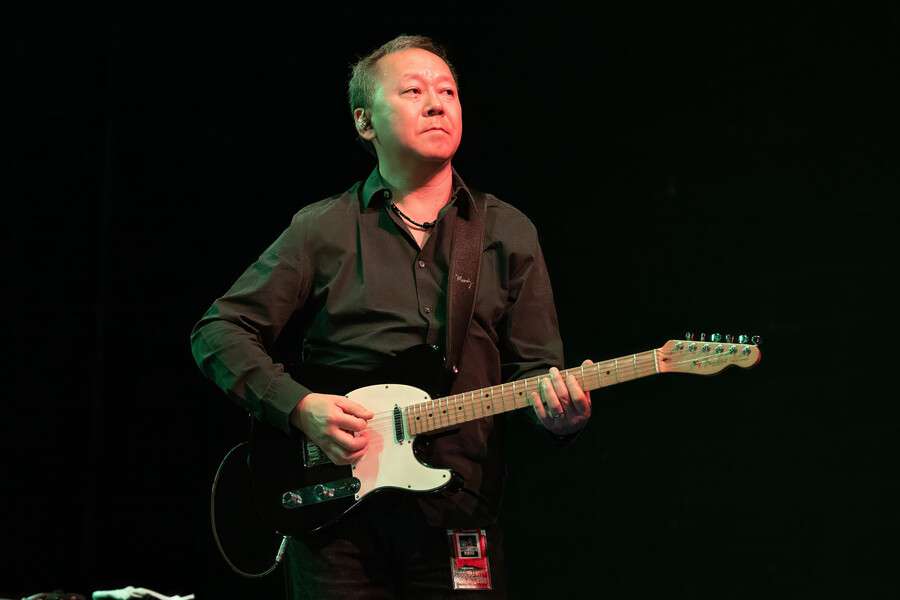
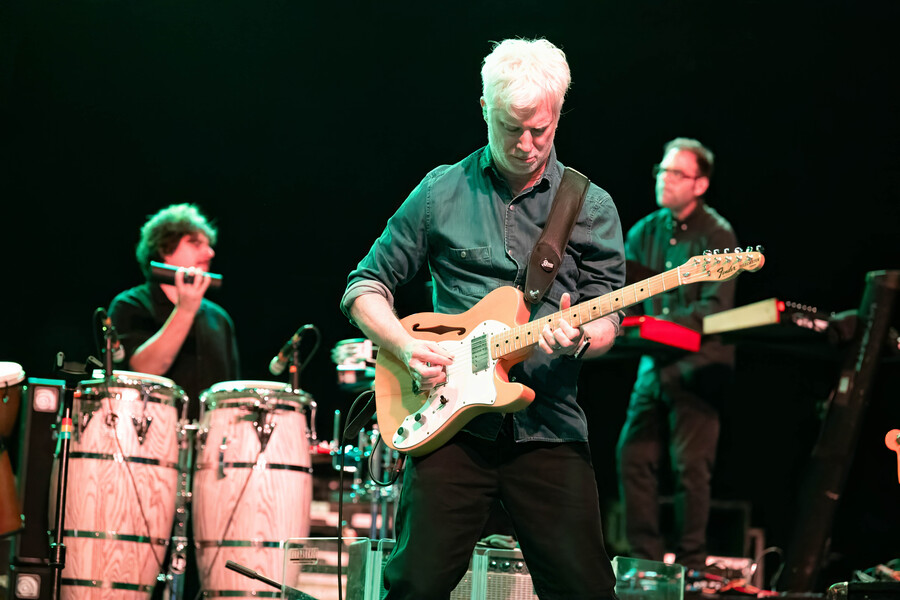
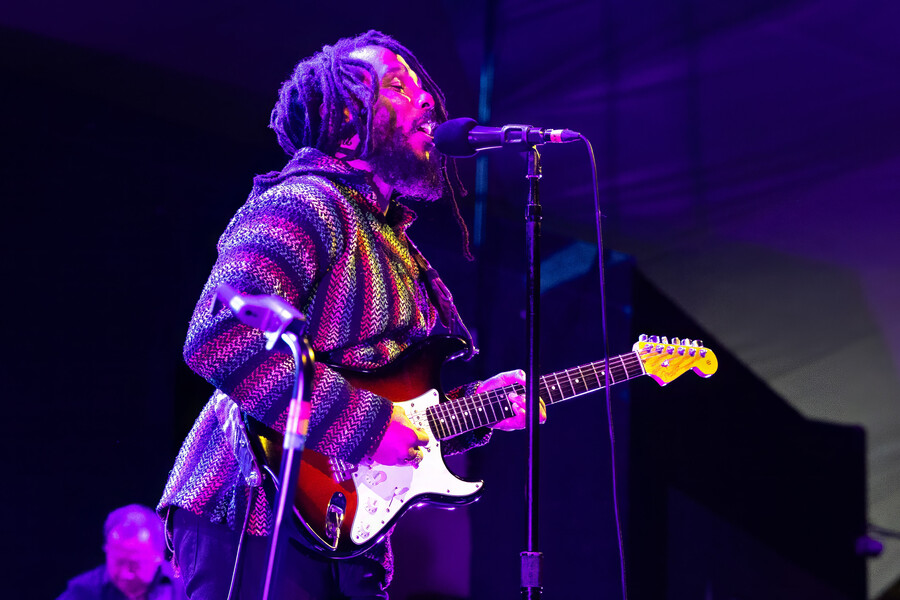
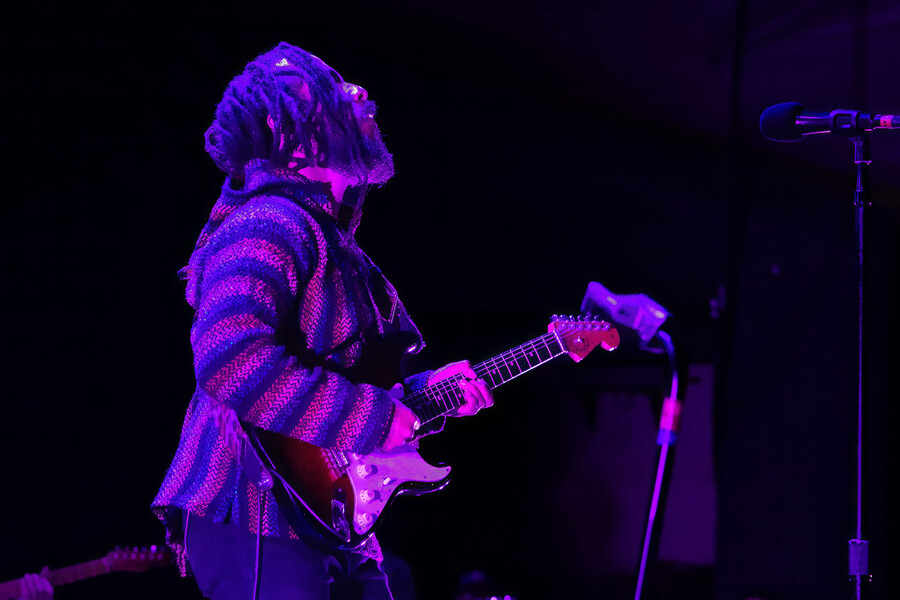
![]()




